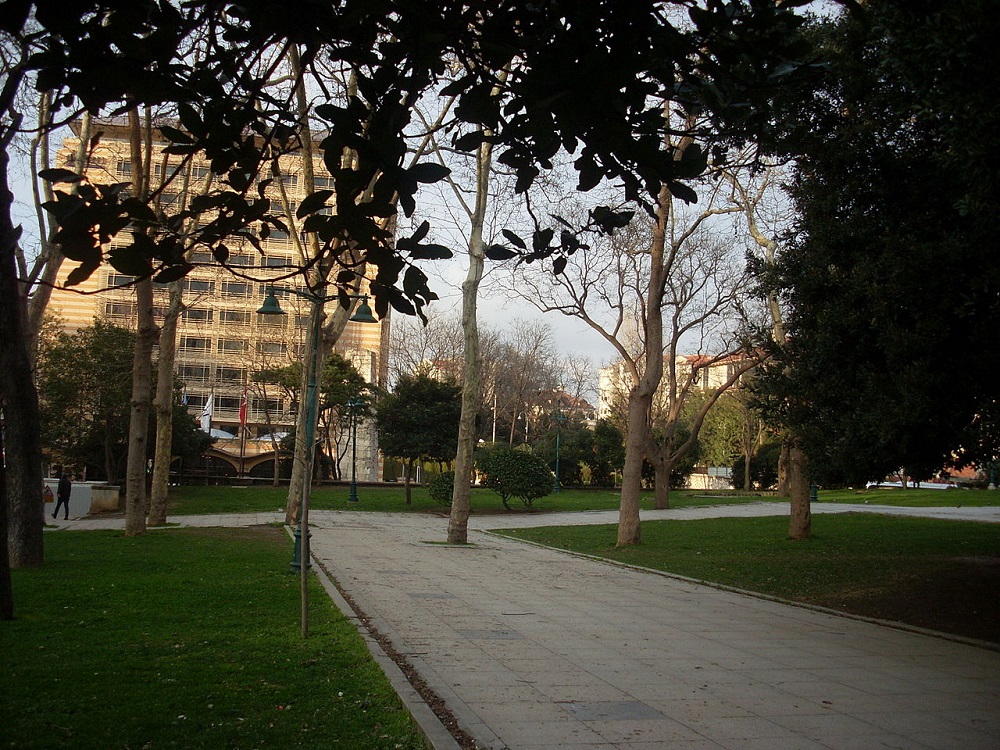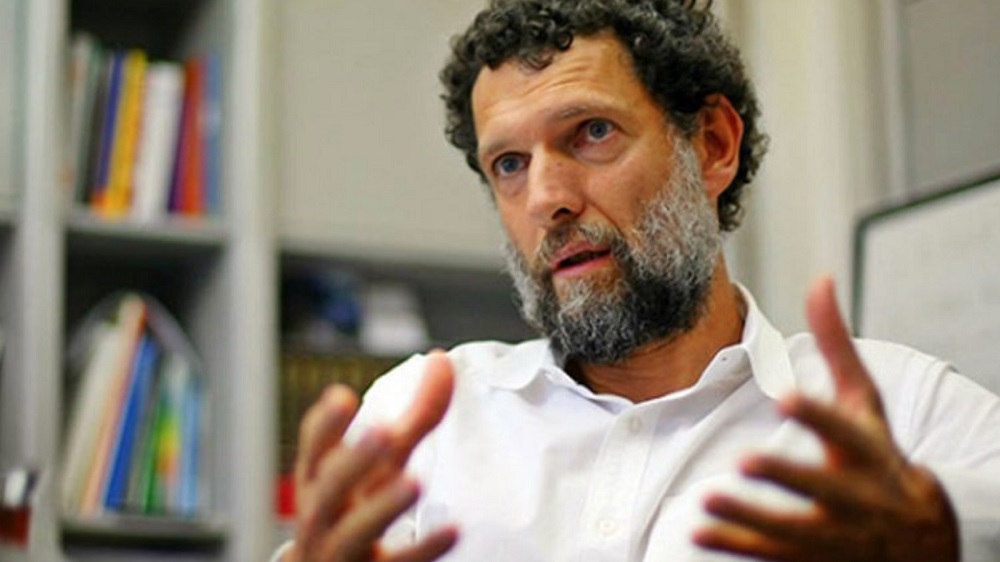Op-ed: Turkey is searching for an 'external enemy'
By the end of November, the Turkish authorities must choose for the lesser of two evils. They are either obliged to release Osman Kavala, thereby fulfilling the decision of the European court, or to agree to the beginning of the procedure of depriving Turkey of its membership in the Council of Europe.
- Normalization of Armenian-Turkish relations: prospects and risks
- Syrian, Afghan refugee crisis hits Turkey amid Taliban takeover
Erdogan – the beginning
Having come to power in Turkey in 2002, Erdogan announced that his former conservative and fundamentalist line was left behind, and he was returning to big politics as a reformist and “liberal-conservative”.
In the early years of power, he was successful in creating such an image. For the first time in its history, Turkey was on the verge of joining the European Union; every day more and more Copenhagen criteria were being introduced into the life of the country. Reforms were carried out on the Kurdish issue, there was an agreement to hold a referendum to resolve the Cyprus conflict. In short, Erdogan and his party (AKP) looked almost perfect from the point of view of Western politicians and international capitalism.
He adhered to this line for a long time. The economic strength of the country and its political rating were gradually growing. Erdogan soon decided to use his position to promote his own organic ideas. First of all, he attacked the institution of laicism [a doctrine based on the separation of religion from the state, minimizing the role of religion in the country – JAMnews]. Bans on Internet freedom were introduced, and conservative interference in the work of television and radio took place. Erdogan began to speak openly about projects to create a “religious generation”.
But these attacks have not yet shaken his rating. In September 2010, when a referendum was held on issues that enabled the government to interfere in the affairs of the courts and the army, the country’s liberal elite (Nazly Ilyjak, Akhmet Altan and others all of whom are now arrested or fled the country) supported Erdogan.
Soon, Erdogan began to take revenge on his former enemies. People who were ideologically close to the followers of Fathullah Gülen and like-minded fundamentalists came to the courts and the army. Even then, the international community still had hopes for Erdogan. When it came to Kurdish and Armenian issues, Erdogan’s party looked progressive and that was enough to convince the Europeans.
Gezi Park and the beginning of a new policy
The situation changed dramatically in the summer of 2013. Erdogan’s plan to close the Gezi Park on Taksim Square in Istanbul, symbolic for the secular part of society, and to build another facility in its place, was met with resistance.

In the last days of May of that year, a group of young people set up a tent to protect the park from being demolished. The news spread quickly on social media, civil society mobilized at a fantastic rate, and a wave of resistance began.
This wave quickly swept across the country, and the protests, which lasted a little over three months and led to the death of 7 protesters and one police officer, forced Erdogan to back down and no one ended up touching the park. Everyone who goes to this Istanbul park can notice the officers of the operational police regiment there at any time of the day, although more than 8 years have passed since those events. In other words, Gezi Park has become a symbol of resistance.
After the summer of 2013, Erdogan lost his former image. For both the international community and civil society at home, he has become an autocrat leader.
Erdogan and philanthropist Kavala
The hatred of the leader of the ruling party in Turkey towards Osman Kavala also dates back to 2013.
Osman Kavala, a philanthropist who is often called “Turkish Soros”, was one of the most active supporters of the Gezi event, providing financial assistance to the protesters. He spent the fortune he inherited from his father on supporting an open society, funding civic activists, and education.

In 2016, after a failed coup attempt, Erdogan took advantage of the situation and declared a state of emergency. During its period, which lasted exactly two years, the activities of 179 media outlets were banned, including 53 newspapers, 37 radio stations and 34 TV channels. At the same time, 6,081 teachers of higher educational institutions were left without work, 283,000 people were detained, of which 94, 975 people were arrested.
The most popular figures among those arrested were the head of the opposition HDP party Selahattin Demirtas and businessman and philanthropist Osman Kavala.
Erdogan has long been waiting for such an opportunity to take revenge on his enemies, and there could not be a better reason than an attempted coup.
Osman Kavala was accused of financing the Gezi Park protests and attempted coup and was arrested in 2017. In 2019, the European Court of Human Rights ruled to release Kavala. But on the very day when Osman Kavala was supposed to be released from prison, another criminal case was launched against him. This time, Kavala was accused of participating in a an attempted coup on July 15, 2016. As a result, he was arrested before he could leave the prison.
In recent days, the issue of Osman Kavala has become more relevant. On the day of the 4th anniversary of the arrest of Kavala, the ambassadors of 10 countries (USA, Canada, France, Germany, New Zealand, Norway, Sweden, Denmark, Finland and the Netherlands) in Turkey published a joint statement demanding the Turkish authorities to implement the ECHR ruling on Osman Kavala.
At the time this statement was published, Erdogan was on a visit to Africa, and his reaction to the document was harsh. He said that all ambassadors who signed the document should be expelled from the country and declared persona non grata.
Erdogan’s statement came during the weekend when the stock exchanges were closed and, as a result of the decision of the Central Bank of Turkey to reduce the discount rate, the US dollar soared to the level of 9.60 Turkish lira.
For the leader of the AKP, there could not have been a better opportunity. He discovered another enemy – the cause of a long crisis, which in fact was the result of many years of economic problems in the country, describing it as “external forces took up arms against Turkey”.
Erdogan used the same technique as in 2018 – in the days of the crisis due to the arrest of theologian Brunson, in early 2017 – during the diplomatic crisis in the Netherlands and Germany. In those cases, the people were also called upon to “consolidate against an external enemy”.
What will Turkey choose?
The results of polls and analyzes before the presidential and parliamentary elections to be held in 2023 show that the chances of a “Republican Union” (a political consortium of AKR and MHP) in power are very small. According to the latest data, the percentage of voters ready to vote for Erdogan’s party is at the level of 2002 and does not exceed 28-33%. The ally of the ruling party, the Nationalist Movement Party, cannot even get 10% of votes required to enter the parliament. It is for this reason that Turkey is planning to reduce the entry percentage to parliament from 10 to 7. This issue has already been submitted to the country’s legislative body.
Seizing the moment, the opposition parties are demanding early elections. In their opinion, without the holding of elections and a change of government, the economic crisis in Turkey will deepen every day and the financial situation of the people will continue to deteriorate.
The crisis of Kavala and the embassies play in Erdogan’s favour at such a difficult time. Erdogan finds more and more reasons for the economic crisis, talks about interference in the affairs of the country by external enemies, calls on his electorate to consolidate.
For now, the tension has subsided, and the ruling party has found a common language with the protesters’ embassies.
But for the liberation of Kavala, Erdogan has time only until the end of November. Until that time, it is necessary either to acquit Osman Kavala, or to release him with a suspended sentence. Otherwise, the Council of Europe threatens to start the procedure for depriving Turkey of membership in the organization.
A similar situation occurred in Azerbaijan in 2018 and the case ended with Baku being forced to release political prisoner Ilgar Mammadov.
What steps will Erdogan take on the Osman Kavala issue in such political and economic conditions? He will either back down, releasing the prisoner, or risk expulsion from the Council of Europe, which will further deepen Turkey’s isolation.
Most analysts are leaning towards the first option. everyone is already accustomed to the fact that in such situations Erdogan yields to requirements. This happened in the case of the American theologian Andrew Brunson, and in the case of the journalist of the Cumhuriyet newspaper Jan Dündar, as well as in the case of the German citizen, journalist Denise Yugel.


















